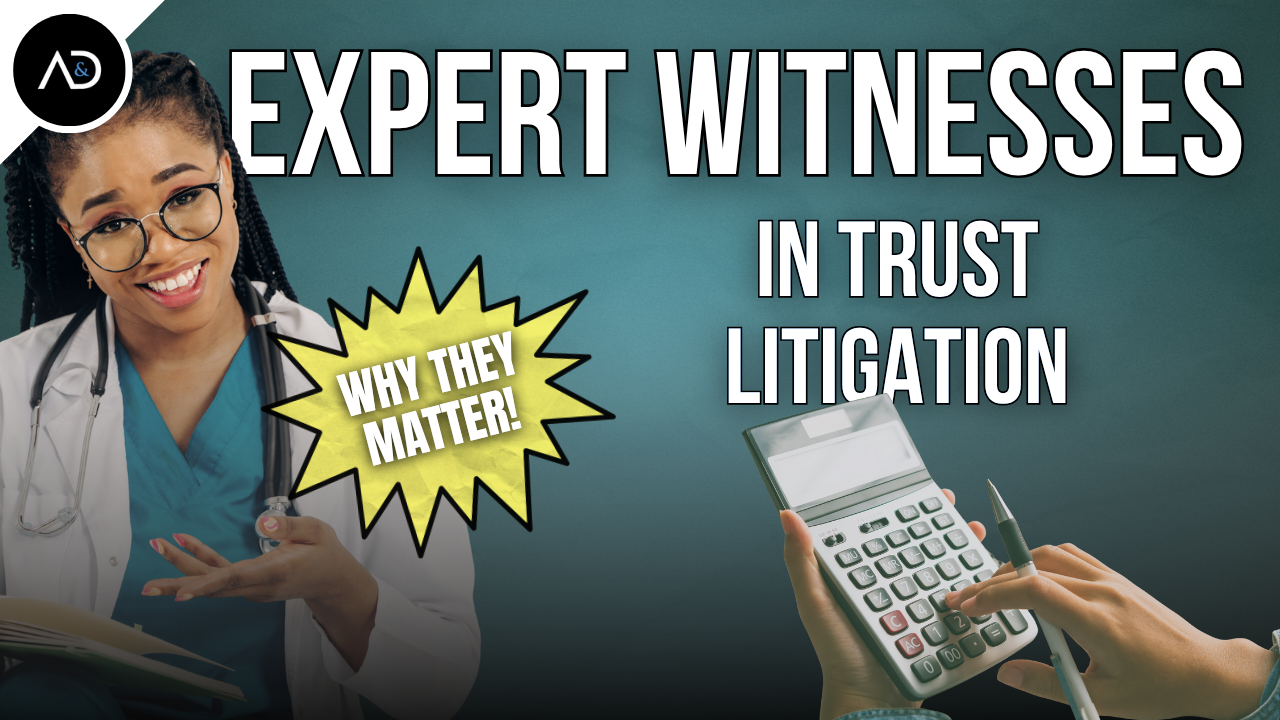
Nearly every trust contest lawsuit will require expert testimony at some point. Why? Because in trust and estate litigation, much of the key evidence—especially medical and financial records—qualifies as hearsay if offered on its own. To get that evidence in front of the court in a meaningful way, you often need an expert.
The Hearsay Problem in Trust Cases
During discovery, you obtain important documents: medical records, financial statements, bank activity reports, care facility notes, and so on. These documents are valuable, but many are technically hearsay. There may be exceptions—but not always.
Medical records are a prime example. A diagnosis in a medical chart—like dementia—is typically inadmissible because it reflects the doctor’s opinion at the time, not live testimony. The solution? Use a qualified medical expert who can review the records and provide a professional opinion based on them.

In lack-of-capacity cases, we routinely retain a geriatric neuropsychologist or similar specialist. They review the decedent’s records and offer an informed opinion about dementia and cognitive decline—crucial evidence the court can rely on.
Financial Experts in Trust Disputes
The same issue arises with financial records. Complex transactions involving trust assets often require expert analysis. A forensic accountant may trace funds across multiple accounts and explain what happened. Investment decisions may require a financial expert to testify whether the trustee acted prudently and in accordance with fiduciary duties.
How to Choose the Right Expert Witness
Finding the right expert is part science, part strategy. Here’s what you should look for:
-
Deep, Relevant Expertise
Don’t hire a generalist. If you’re proving diminished capacity, hire someone whose career focuses on dementia—not a family doctor. The court wants a specialist, not someone offering opinions outside their lane.
-
A Clean Professional Background
Do your due diligence. No disciplinary issues, no suspensions from professional organizations, no problematic reviews. Opposing counsel will dig. You don’t want your expert crumbling on cross-examination.
-
Credibility and Balance
Experience testifying matters—but so does balance. If your expert always testifies for the same side (plaintiffs or defense), they can look biased. A credible expert has a track record of objective, case-specific opinions, not cookie-cutter testimony.
-
Strong Communication Skills
Courtroom skill is essential. Some brilliant professionals simply do not testify well. Great experts can explain complex issues clearly, respond confidently under pressure, and think on their feet during cross-examination.
A Critical Warning About Expert Communication
Once you retain an expert, everything you say to them—emails, texts, messages—may be discoverable. Too many clients overshare with experts via email, unintentionally damaging their own case.

Rule of thumb:
-
Clients should not communicate directly with experts.
-
All contact should flow through your attorney.
-
Keep written communication to a minimum—speak verbally whenever practical.
This protects work-product and prevents avoidable mistakes.
Final Thoughts
Expert witnesses often make or break trust litigation cases. They bridge the evidentiary gap between raw records and admissible, compelling proof. Selecting the right expert—one with specialized knowledge, credibility, and strong courtroom presence is essential.
Understanding how to identify, retain, and communicate with experts gives you a strategic advantage in trust contests, capacity disputes, undue influence claims, and breach-of-trust actions.
If you’re unsure whether you need legal help, consider scheduling a free consultation with an experienced probate lawyer. A good lawyer can quickly assess your situation and guide you on the best course of action

